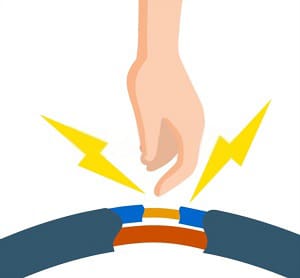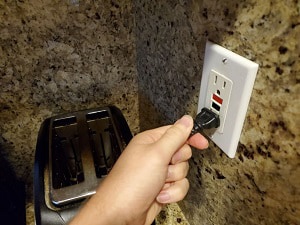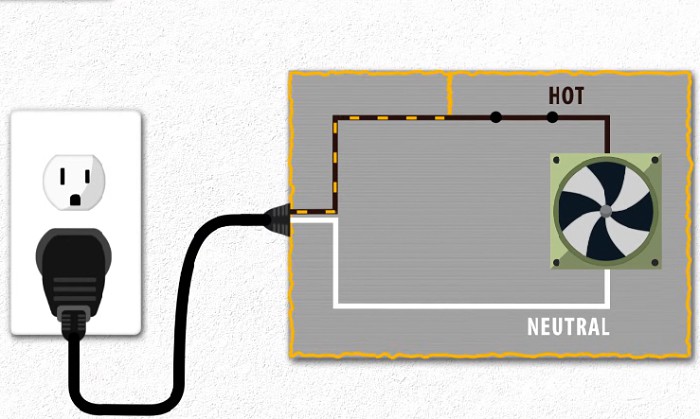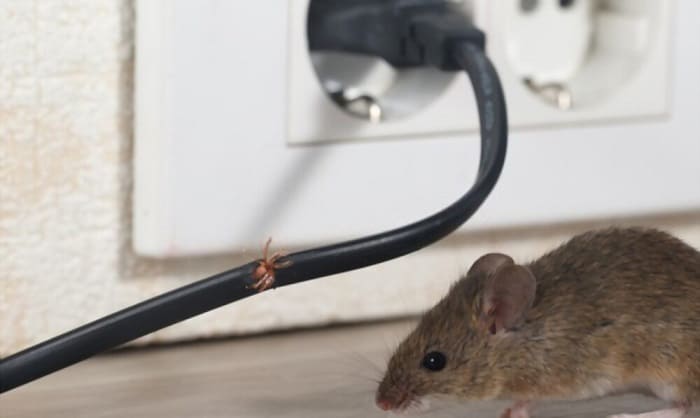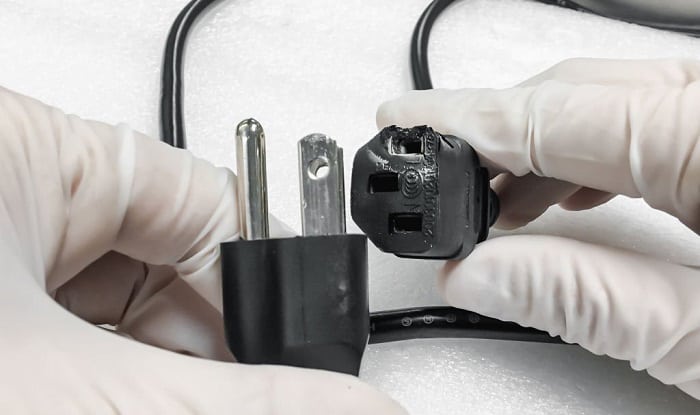Ground faults and short circuits are among the most common electrical problems that trip breakers. Moreover, they can cause damage to devices or even result in a dangerous fire and electrical shock.
These electrical problems have several similarities, which also bring confusion to many of us. To differentiate ground fault vs short circuit, here are the things you need to know.
Table of Contents
Short Circuit Vs Ground Fault
Before anything else, it is important to understand that electricity always flows back to its source. Furthermore, it also finds and uses the path with less or no resistance—a path where it can travel the fastest.
Now, in terms of problems that commonly occur in an electrical system (such as short circuits and ground faults), here are some definition and facts that you should know.
What is Short Circuit Fault?
A short circuit is an event where the hot wire touches the neutral wire. This disrupts the natural path of the electrical connection — meaning that the power no longer moves through the entire circuit, resulting in excess current.
In most cases, a short circuit creates heat, which causes a spark and electrical fires. To prevent this significant damage, the circuit breaker immediately trips and cuts off power. To fix a short circuit. I’d like to recommend for you this detailed guide, check out now!
What is an Electrical Ground Fault?
A ground fault is an event where the hot wire touches the ground. This is also called a short to ground. There are two common scenarios where a ground fault occurs in a circuit.
The first is when the hot wire touches the ground wire connected to a metal housing before the load. In this case, the circuit breaker will immediately trip or the fuse will blow to prevent further damage.
However, in some cases, a ground fault occurs after the load. In this scenario, the device might still be functional (depending on the affected components) and will not cause a circuit breaker to trip.
You can find a ground fault in appliances by plugging them into a GFCI circuit. The GFCI circuit breaker or outlet will immediately trip when it senses electricity that comes from the ground.
However, if the ground fault occurs within the line or the outlet itself, the GFCI circuit breaker will continue to trip until you solve the issue.
A ground fault without a grounding wire is very dangerous, as it can electrocute anyone who touches the metal where the fault is present. To fix a ground fault on appliances or in the circuit, calling a professional to do the job is a wise choice.
Differences Between Short Circuit and Ground Fault
As you read the above information, you could say that short circuits and ground faults are not that different.
They are both looking for a shortcut for the electricity to return to its source. They also cause a circuit breaker to trip or cause an electrical shock to anyone accidentally touching the fault.
But the only difference between these two faults is the line where it occurs. They also have different paths used to return the electricity to its source.
If one of these faults occurs in your circuit and you can’t define ground fault or a short circuit, you can turn off the breaker and analyze the cause.
What Causes Short Circuit?
- Loose Connection
A loose electrical connection, including the wrong electrical wiring, is the most common reason for a short circuit. A loosened or saggy terminal can cause wires to come in contact, resulting in a short circuit.
To prevent this, you can tighten all the terminals and look for a cable diagram during installation. Do not attempt to tighten a loosened terminal while it has electricity.
- Damaged Wire
Damage to wire due to animal or insect bites can also be the reason for a short circuit. When this happens, there is a high chance that the hot wire may touch the neutral wire and cause a short.
- Broken Appliances
There is also a chance of a short circuit occurring when the appliances are broken. Broken appliances have many components inside like electrical wiring that can cause a short circuit.
What Causes Ground Fault?
- Water
The most common cause of a ground fault is when an electrical circuit comes into contact with water. Moisture can cause a ground fault, since water is a conductor of electricity.
- Worn Wires
Worn hot wires due to animal bites or negligence during line installation can also cause a ground fault. It happens when a damaged hot wire touches the bare ground wires or metal covers.
- Poor Wire Insulation
Poor insulation of a device power cord or extension cord can also cause a ground fault. Furthermore, a cord without proper insulation can easily get damaged, or the water can easily find a way to enter the wires.
How to Prevent Short Circuit and Ground Fault?
These electrical problems cannot be totally avoided, but there are some tools you can use to minimize their risk. For example, arc fault and ground fault protection is worth having.
A ground fault circuit breaker or outlet can be used to detect the presence of a ground fault in a particular circuit. At the same time, an arc fault circuit breaker is used to detect a circuit’s damaging arc.
NEC standards now require circuit breaker ground fault and arc fault devices in some areas of the house.
A GFCI outlet or breaker is now necessary in areas with water such as the bathroom, kitchen, laundry, basement, workshop, outdoors, and garage.
At the same time, AFCI devices should be used in the living room, hallways, bedrooms, and closets.
FAQs
Is Ground Fault The Same as Short Circuit?
As mentioned above, a ground fault is different from a short circuit.
A ground fault occurs when hot wires touch the ground connected to a metal frame. In contrast, a short circuit occurs when hot wires touch the neutral wire.
Can a Ground Fault Cause a Short Circuit?
A ground fault may be considered a kind of short circuit, though the two occur in different ways. With the help of tools called overcurrent protection, a ground fault will not cause or result in another electrical problem.
Overcurrent protection device such as ground fault detector, circuit breakers, AFCI and GFCI outlets prevent fires and other dangerous electrical hazards.
Any of these will immediately activate or trip when it senses a current fault.
Fault Current and Short-Circuit Current: What is the Difference?
In terms of current, a fault current refers to a load exceeding the rating of devices. For example, a device has 100 amps of power. Anything that exceeds this rating is what we call a fault current.
In contrast, a short circuit current is a max current that a device can hold when a short circuit occurs. Fault current has high resistance, while short circuit current has zero resistance.
Conclusion
Knowing the differences between a ground fault vs short circuit will help you efficiently resolve problems in your electrical system.
Furthermore, using different overcurrent protection tools will reduce the risk of these dangers.
Are you satisfied with the information above on ground faults and short circuits? If you are, you can share this article with others so that they can also benefit from it.

I am Edwin Jones, in charge of designing content for Galvinpower. I aspire to use my experiences in marketing to create reliable and necessary information to help our readers. It has been fun to work with Andrew and apply his incredible knowledge to our content.


